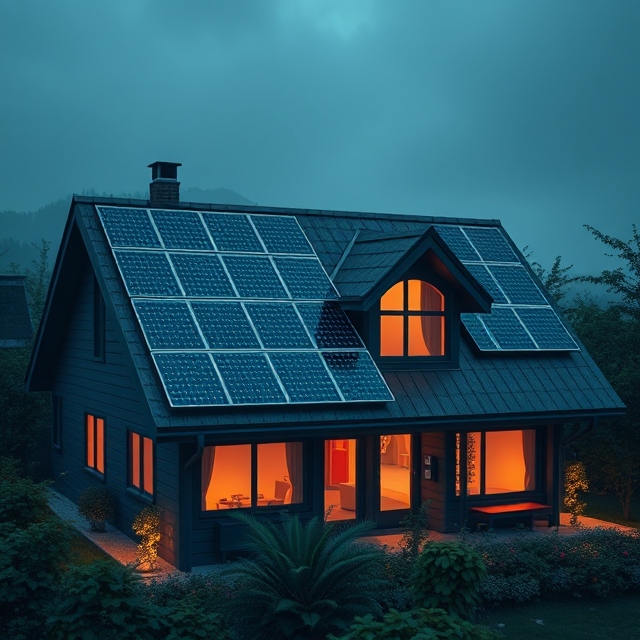
As the world continues to pivot towards renewable energy, solar panels have emerged as a leading choice for homeowners looking to reduce their energy costs and environmental impact. But how many solar panels do you actually need to power a house? This article will explore the factors influencing the number of solar-panels required, along with insights on solar panel cost, types, and potential savings.
Factors Influencing the Number of Solar Panels Needed
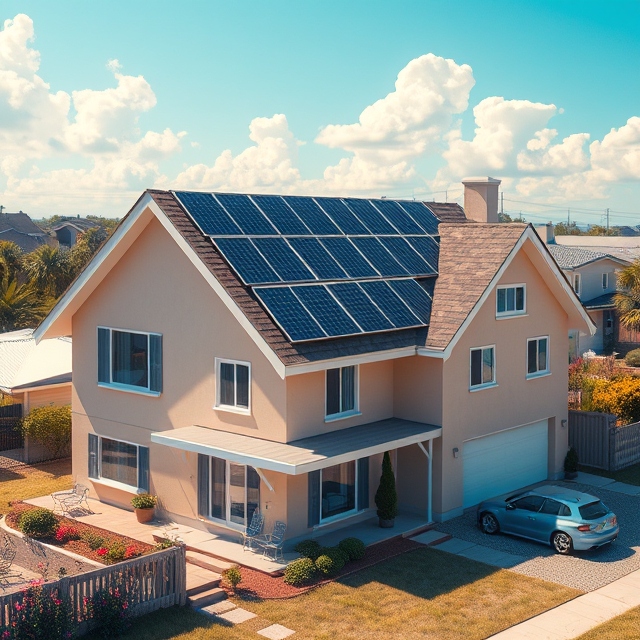
The number of solar panels necessary to power a home varies based on several factors:
- Energy Consumption: Your monthly energy usage in kilowatt-hours (kWh) is the starting point. Using your utility bill, calculate how much energy your home consumes. The average American household uses about 877 kWh per month.
- Solar Resource Availability: The amount of sunlight your location receives, measured in peak sun hours, affects solar energy production. Areas with more sunshine require fewer solar panels.
- Panel Efficiency: Different solar panels have varying efficiencies. High-efficiency panels, like Tesla solar panels or SunPower solar panels, convert more sunlight into electricity, reducing the number of panels needed.
- Roof Size and Orientation: The area available for solar panels on your roof also impacts how many you can install. South-facing roofs typically yield more energy.
- Local Climate Conditions: Factors such as shading from trees or buildings and seasonal weather variations can impact solar production.
How to Calculate the Number of Solar Panels Required
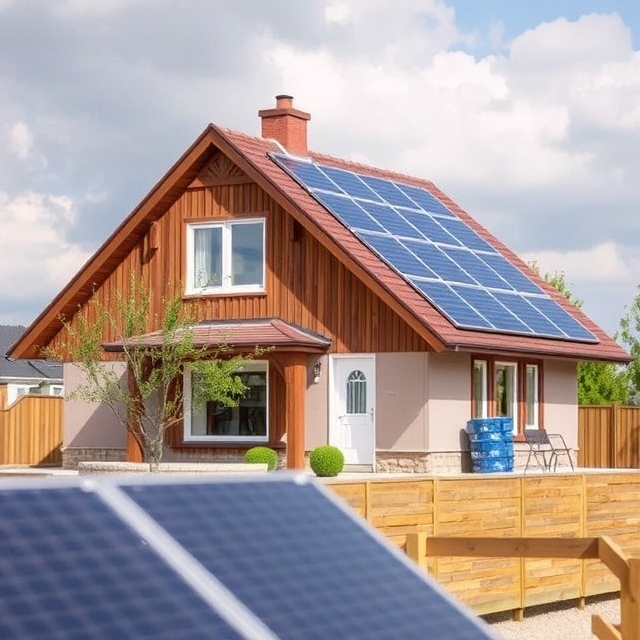
To estimate how many solar panels you need:
- Determine Your Average Monthly Energy Usage:
- For example, if your monthly usage is 900 kWh, you need to find your average daily usage:
- 900 kWh / 30 days = 30 kWh.
- Calculate Solar Production:
- Next, determine how much energy one sola-panel produces per day. On average, a standard solar panel produces about 250-400 watts of electricity.
- Assuming you use a 300-watt solar panel that generates about 1.5 kWh per day (based on about 5 peak sun hours), you can calculate:
- 30 kWh daily usage / 1.5 kWh per panel = 20 solar panels needed.
| Specifications | Panels Required |
|---|---|
| Monthly energy usage 600 kWh | 15 panels (with 300-watt capacity) |
| Monthly energy usage 900 kWh | 20 panels |
| Monthly energy usage 1200 kWh | 25 panels |
Solar Panel Cost
The cost of solar-panels can vary significantly based on various factors. Here’s a breakdown of the average costs involved:
- Total Solar Panel System Cost: The average cost of solar panel installation ranges from $15,000 to $25,000 before tax credits and incentives.
- Solar Panel Cost per Watt: The price generally lies between $2.50 and $3.50 per watt for the panels.
- Tesla Solar Panels: With their premium features, the cost is typically higher, often exceeding $3.50 per watt.
- Performance-Based Incentives: Find solar companies near me that may offer financing options, tax credits, or rebates to offset the costs.
Benefits of Going Solar
- Reduced Energy Bills: Solar energy can significantly lower your monthly utility bills, leading to long-term savings.
- Environmental Impact: Switching to solar power decreases your carbon footprint and reliance on fossil fuels.
- Increase Home Value: Homes equipped with solar-panels often see increased property values.
Finding Solar Installers Near You
When considering solar panel installation, it’s crucial to find solar panel installers near me. Research local companies, customer reviews, and available warranties. Request multiple quotes to compare services and pricing, ensuring you choose the best option for your needs.
Government Incentives and Rebates
Many governments offer incentives and rebates to encourage the adoption of solar energy. These can significantly reduce the upfront costs of solar panel installation:
- Federal Tax Credit: In many regions, homeowners can benefit from a federal tax credit that allows them to deduct a percentage of the installation costs from their federal taxes.
- State and Local Incentives: Various states and municipalities offer additional rebates, grants, or tax exemptions for solar panel installations. Research your local programs to maximize your savings.
- Renewable Energy Certificates (RECs): Some states allow homeowners to earn certificates for the renewable energy produced by their solar panels, which can be sold for additional income.
The Future of Solar Panels
The solar industry is rapidly evolving, with advancements in technology leading to more efficient and affordable solar-panels. Innovations such as bifacial panels, which capture sunlight on both sides and solar shingles, which integrate seamlessly into roofing materials, are becoming more common. As technology continues to improve, the accessibility and efficiency of solar energy will likely increase, making it an even more attractive option for homeowners.
FAQs
How long do solar panels last?
Typically, solar panels last 25-30 years, with warranties that often cover that period.
What is the average cost of solar panel installation?
The average cost ranges from $15,000 to $25,000 before tax credits and incentives, depending on your location and system size.
Are there any maintenance costs for solar panels?
Annual maintenance for solar panels is minimal, usually requiring a periodic cleaning and inspection.
Can solar panels work in cloudy weather?
Yes, solar panels can still generate electricity in cloudy weather, although at a reduced capacity.
Conclusion: The Future of Solar Power
Investing in solar energy through solar panels for your home not only pays off economically but also contributes to a sustainable energy future. Whether you are interested in portable solar panels for adventurous excursions or considering a Tesla solar roof, the options are abundant.
By understanding your energy needs and conducting thorough research on solar companies, you can determine the best strategies for embracing solar power. Whether you’re looking for options near you or considering an off-grid solar system, the transition to solar is not just an investment in your home but a commitment to a greener planet.
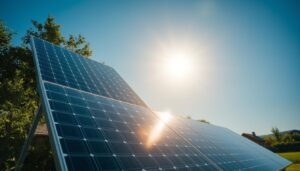
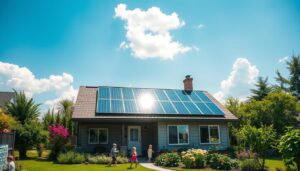
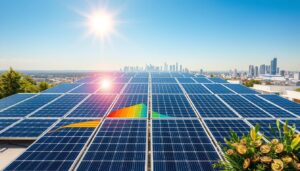




3 thoughts on “How Many Solar Panels to Power a House?”
Comments are closed.